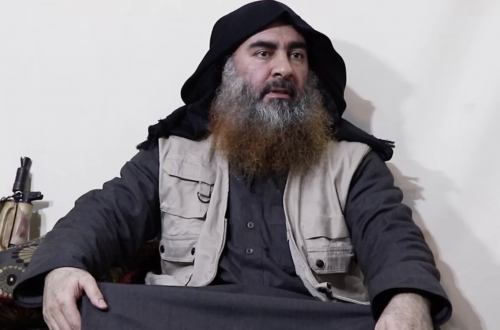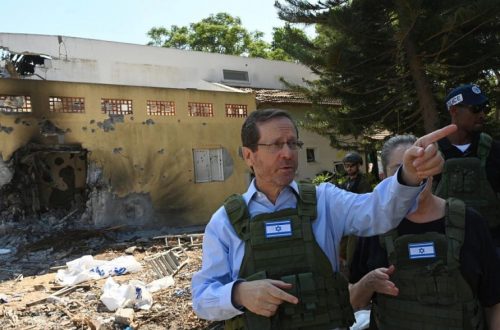Tariq Ramadan’s response to Imam Shaker Elsayed’s controversial pronouncements on FGM, circulated via a ten minute Facebook video, has already attracted considerable criticism. Here are just a few further thoughts on the issue.
The opening of the video is a little elliptical. I’ve put the relevant sections in bold:
“My position as a Muslim scholar, my position: it’s wrong that we should not promote this because I think that first, it’s not in the Koran and second, it’s part of the Sunnah that we have, and it’s something that is done in African countries, among the Christians and the Muslims and it’s not religious. Having said that, I cannot deny the fact that some scholars at the highest levels of their institutional position are supporting the fact that this is possible that you can go for excision, not to go up to the mutilation and infibulation as it is known in African countries, but we have this in our tradition and it’s part of the internal discussion that we need to have.
I don’t think this article, which offers a useful transcript of the video, is quite correct in saying Ramadan thinks FGM ‘is therefore worthy of being “promoted”’. The build up of clauses makes the first sentence difficult to parse, but it might be clarified by inserting a dash between ‘it’s wrong’ and ‘that we should not promote this’. In other words he does condemn the practice.The fact that the next sentence begins ‘Having said that’ implies a contrast, and backs up this interpretation.
However that doesn’t let Ramadan off the hook.
It’s quite unusual for someone on Ramadan’s place on the Islam spectrum to assert that FGM has some connection to Islam. This view is more normally aired by Haitham al Haddad types on the one hand, and those hostile to Islam on the other. Even the comparatively Islamosceptic may be happy enough to agree that FGM is a cultural problem, not an Islamic one. If Ramadan were unequivocally and without caveats condemning FGM then there would be no problem in him facing up to the fact some Islamic teachings/traditions condone the practice. However, as with stoning, he seems to feel that the issue needs to be dealt with by Muslims alone – ‘it’s part of the internal discussion that we need to have’, he opines blandly, as though he was talking about the most recondite theological point, not this vile practice.
Ramadan seems more exercised by the merest hint that Muslims might be deferring to non-Muslim concerns than by FGM itself.
So to please people who are attacking Islam by saying ‘Oh no, no, no, this is not Islamic. It’s illegal,’ it’s not even faithful to our tradition. We need to have an internal discussion.
He continues in the same vein, shooting the messenger rather than tackling the abuse. It’s interesting that Ramadan, so often presented as a voice of moderation, should demonstrate such disdain for any kind of weakening of the collective front of the Ummah. This, for him, is the real problem. Given that a great many Muslims really do think FGM unislamic, and want to combat it, it seems strange to hamper efforts to amplify this position – even though it seems likely both to help potential victims and promote a better understanding between communities.
These are Islamophobes, and you react to them by just exposing one of your leaders, a shaykh that has been serving the community for more than 30 years and you ask for him to be fired so quickly just to be on the safe side of the political discussion in the United States of America by saying ‘Oh, we have nothing to do with this’ while your tradition is there and it’s discussed within your tradition and whoever is attacking you at least you have to be cautious with the people who are using this and are putting you in a situation which is yes, problematic, but you have to stand for your rights to have opinions, and at least to have internal discussion and not to react so quickly to these issues…
There seems to be little space in Ramadan’s world for non-Muslims to be concerned about FGM but not be motivated by bigotry. It’s more important to guard against even a suspicion of bigotry, to protect other Muslims from criticism even if they hold despicable beliefs, than it is to oppose the mutilation of girls. Moreover this continuing emphasis on internal discussion cannot easily be squared with an absolute certainty as to the eventual, the correct, outcome of the debate.
It is for us to decide, not for Islamophobes, not for racists, not for people who have political agendas that are now deciding for us… The way you have to be dignified as a Muslim is to rely on him [points upward] to be consistent with yourself and to respect your brothers, not to expose them, not to expose your sisters, even though you disagree, even though you don’t agree.
In emphasising the divide between Muslims and non-Muslims, flattening the sharp differences between Muslims, Ramadan ironically aligns himself with anti-Muslim bigots. Other people prefer to draw the line between secularists (both Muslim and non-Muslim) and the rest.


